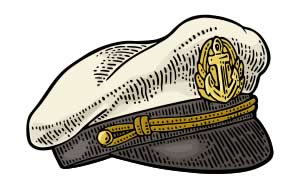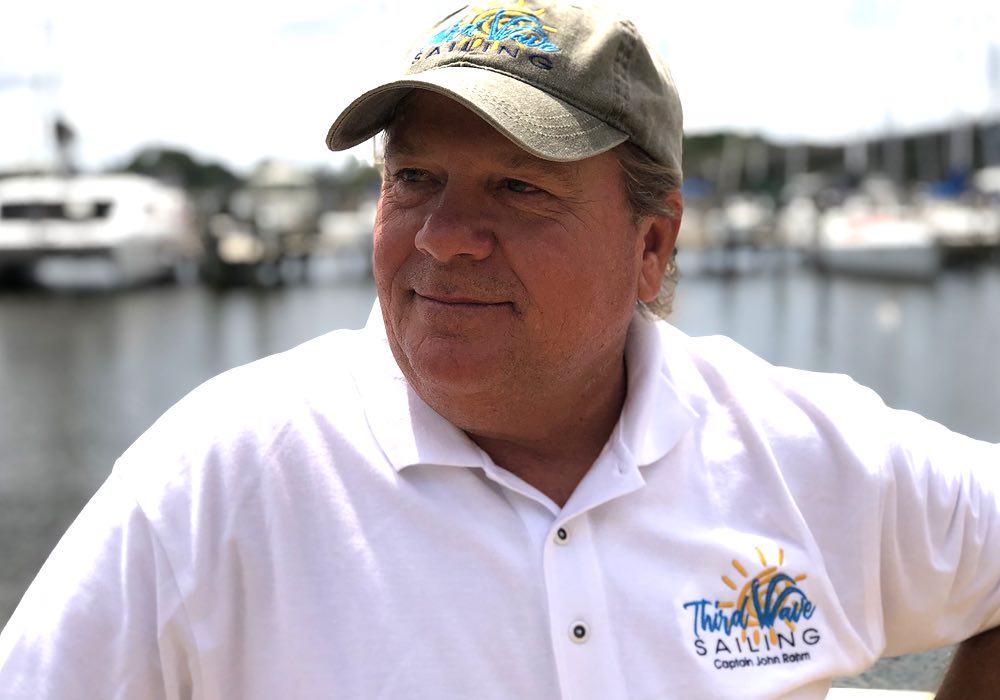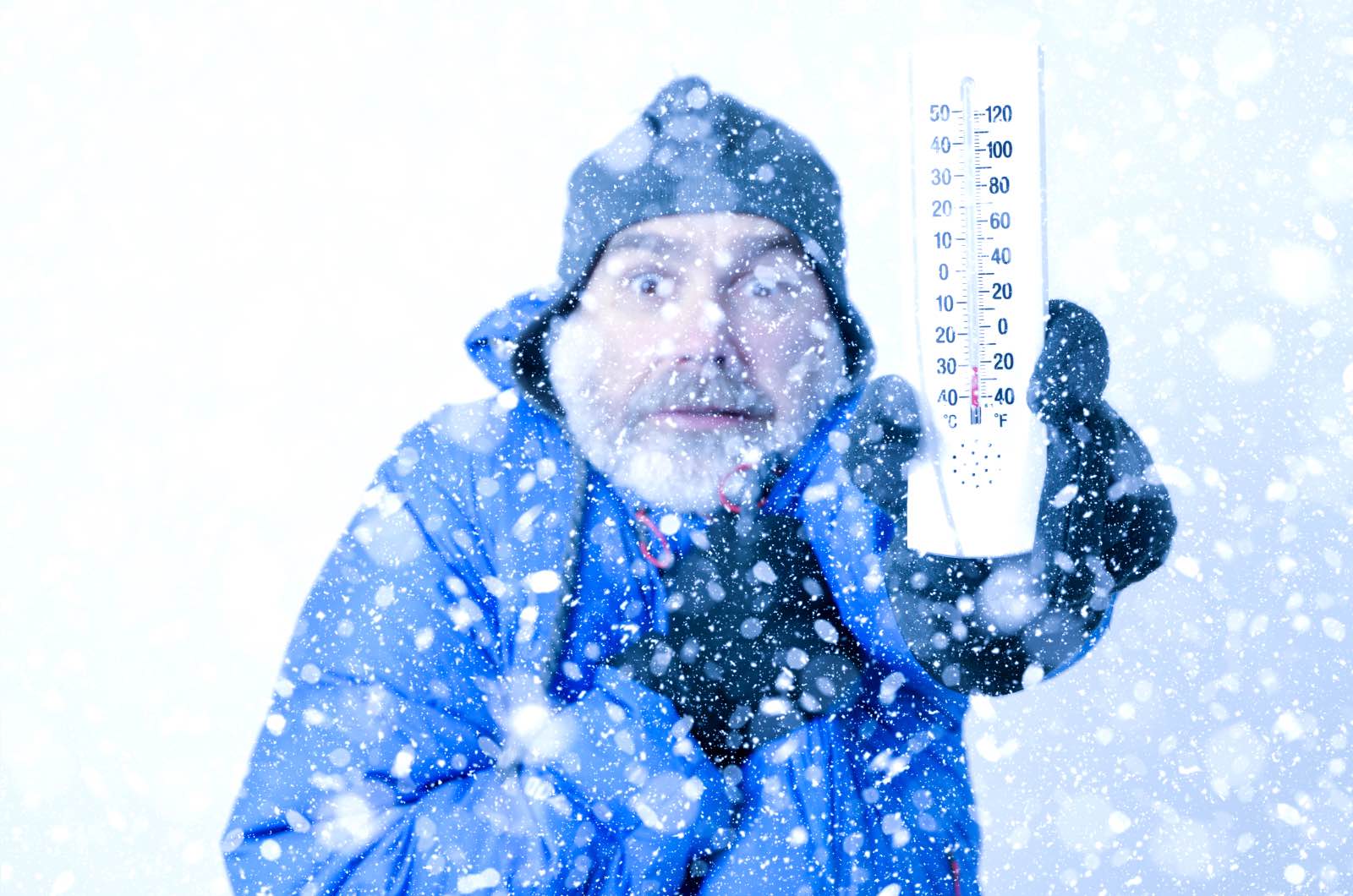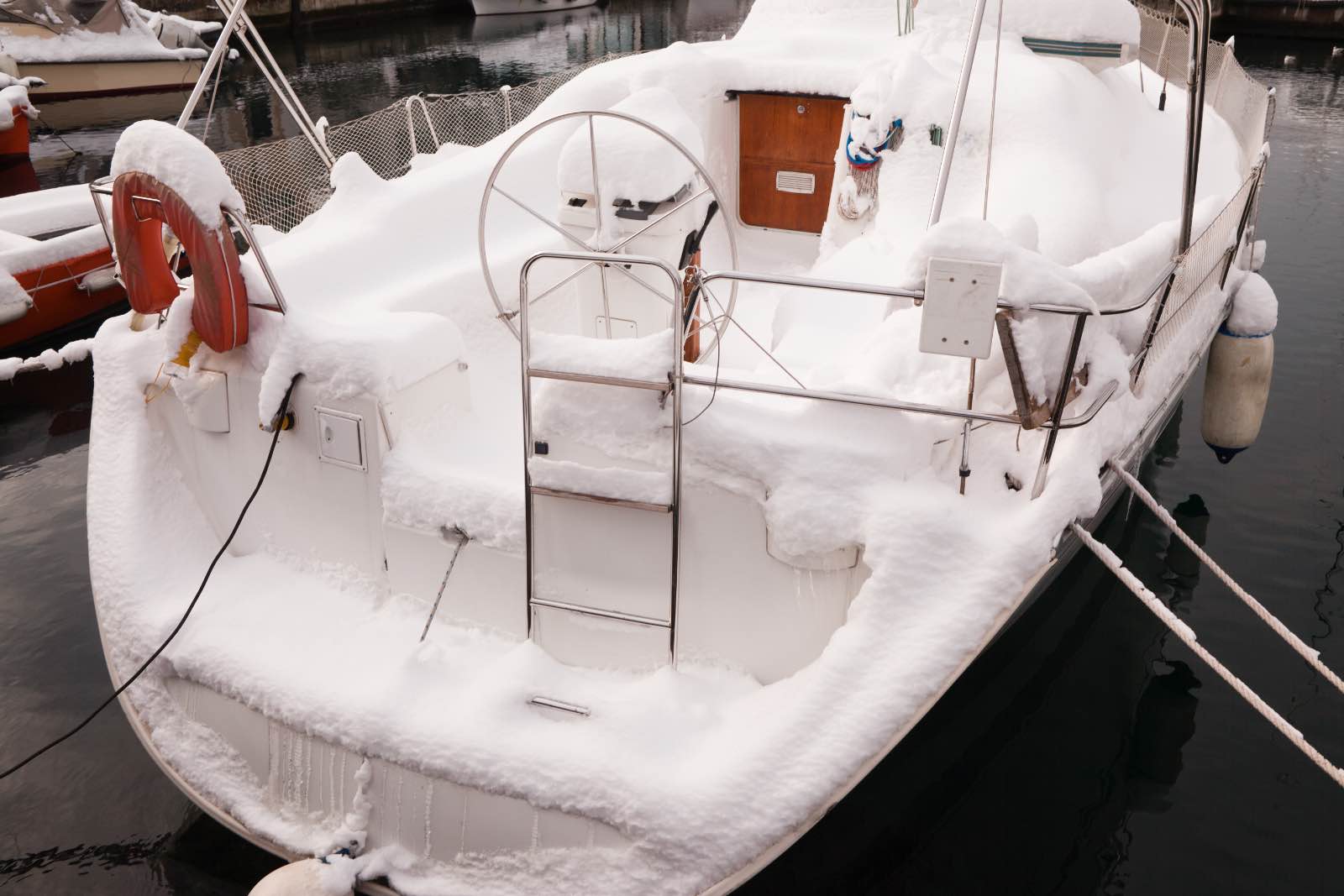It's Tuesday February 24, 2026

January 2024
Temperatures Tuesday and Wednesday night will be in the twenties. As a result of the forecast, I’ve been catching a lot of winterizing questions.
“Hey Captain John, should I winterize my boat?” The answer to this annual question is not easy. The devil is in the details and there is no one truth. The answer also varies with degree (pun intended).Lacking a functional crystal ball that predicts freezing, I usually say no – winterization is not required here in Oriental. With the boat floating, water temperatures usually prevent the colder ambient air from freezing the boat.
I don’t worry about freezing until I see 20s. Even 20s will not damage a boat for a short time overnight. And, salt lowers the temp at which water will freeze.
However, the real discussion should be to what degree (another pun intended) do I need to winterize my boat? What do you mean by winterization? So before you hire a mechanic at $100+ an hour, here is the short version of my solicited thoughts.
Discussion about winterization is four things: Fuel, Engine, Fresh water system and Head.
Stabilizing the FuelFor winterization, fill the diesel tank(s). Air in the tank, combined with fluctuating temperatures, creates condensation (bad). Top off the fuel: no air in the tank.Pour in an appropriate additive. I mean an engine manufacturer recommended and approved additive. A jar of your Uncle’s moonshine is not an appropriate fuel additive. You laugh. But I write from experience.
So make sure there is no air, water or contaminates in the fuel system: bleed or drain. Also, make sure you run the engine to distribute the additive though out the fuel system.
EngineChange the oil. Even slightly used oil might have contaminates and/or moisture.And change the often neglected transmission oil. Winterizing is a good opportunity to show your transmission some love.
However, the most important engine winterizing step is preventing a frozen raw water cooling system from cracking the engine block or heat exchanger.
The generic procedure is:
• Close the raw water intake thru hull.
• Clean out the raw water intake strainer (make dry).
• Remove the hose that goes to the impeller / engine from the downstream side of the strainer. Put this hose in a bucket of antifreeze. So when you start the engine, it sucks the anti-freeze through the engine and out the exhaust / back of the boat. Use non-toxic, environmentally friendly anti-freeze. You may need five gallons or more.Also, you might need some help adding / re-filling a small bucket as the anti-freeze pumps. When the boat spits pink out the back for about 30 seconds, you have done enough.
Alternate methods include dumping the antifreeze directly into the top of an open raw water strainer or removing the intake hose on the impeller housing and attaching a dedicated hose that leads back to your bucket of antifreeze.
If these are your methods, make sure you get some anti-freeze upstream. (Make sense?)
Fresh WaterStep 1. Hot water first. Drain the hot water heater dry. Turn on the hot faucets or disconnect the heater hoses and drain. A cool trick is attaching your dingy air pump to the inlet and blowing the remaining water out of the heater (cool trick). Anyway, get all the water out of your hot water tank. Make sure you re-attach the heater hoses.Step 2. Drain the fresh water system. Empty all tanks. (Turn off the fresh water pump.) Pour the pink stuff (a lot) into the water tank(s). Turn the pump back on. Run the pink stuff through all the faucets hot and cold.
Done with the fresh water system.
HeadWinterizing the head is easy; you are pumping and dumping (not you – the pink stuff).First close the intake thru hull. Pump to remove the raw water in this supply line. Then the pink stuff goes into the bowl to be flushed into the hold tank.
Pump out first and make sure the holding tank is spiffy clean before adding the pink stuff.
That completes the four steps.
Additional thoughtsBut, “Hey Captain John, what about the propane system?” Answer: your propane system will be fine without winterizing. Of course as always, drain the propane line when not in use.“Hey Captain John, what about the batteries?” In Minnesota, the batteries must come off. Around here, your batteries will be fine. But, partially charged batteries are more easily damaged by the cold. Keep them charged.
This doesn’t happen often in Oriental, but every few years…On board space heaters scare me. Most marinas prohibit the use of a portable heater.
Confession: I have used them – the ones designed for marine use.
I turned it on when the temperature dropped below 30°F and off when back above 30°F. And I checked this heater constantly.
For the love of God, do not use your grandmother’s space heater (that you got when she died) in your boat (I write from witnessed experience).
Even with the onboard heaters operating, it is possible for the fresh water lines to freeze. A particular vulnerability is a shower. With showers, most plumbing runs again the hull.
One year when the Neuse froze solid, the brass combiner / diffuser behind our boat shower faucets froze and cracked because it was against the hull and behind the shower wall.
Oldsters…Old timers tell stories about thick ice cracking underwater thru hulls or even crushing boats. In these conditions, boats must be hauled or bubbled.Northern marinas have bubbling systems that keep the water moving enough to prevent freezing. Good friends who live in the upper Chesapeake install a portable bubbler under their boat during the winter. Solid ice can pull up pilings and twist piers. Once thawed, northern marinas typically repair the annual winter damage.
So in summary, here in Oriental, winterizing is not a yes or no option. You are ordering off the winterizing a la carte menu.
My last bit of advice is plan for the worst.
These are easy mitigating steps and might be worth your while; particularly if you are away from your boat during winter. Contact me or find me around town if you would appreciate some assistance.
Fair Winds (and warmer temps),
Spring is right around the corner.
Captain John Rahm
 Captain's Blog on TownDock.net is all about making your time on the water enjoyable. Captain John Rahm teaches sailing and boat handling at Third Wave Sailing. Captain's Blog on TownDock.net is all about making your time on the water enjoyable. Captain John Rahm teaches sailing and boat handling at Third Wave Sailing. |


